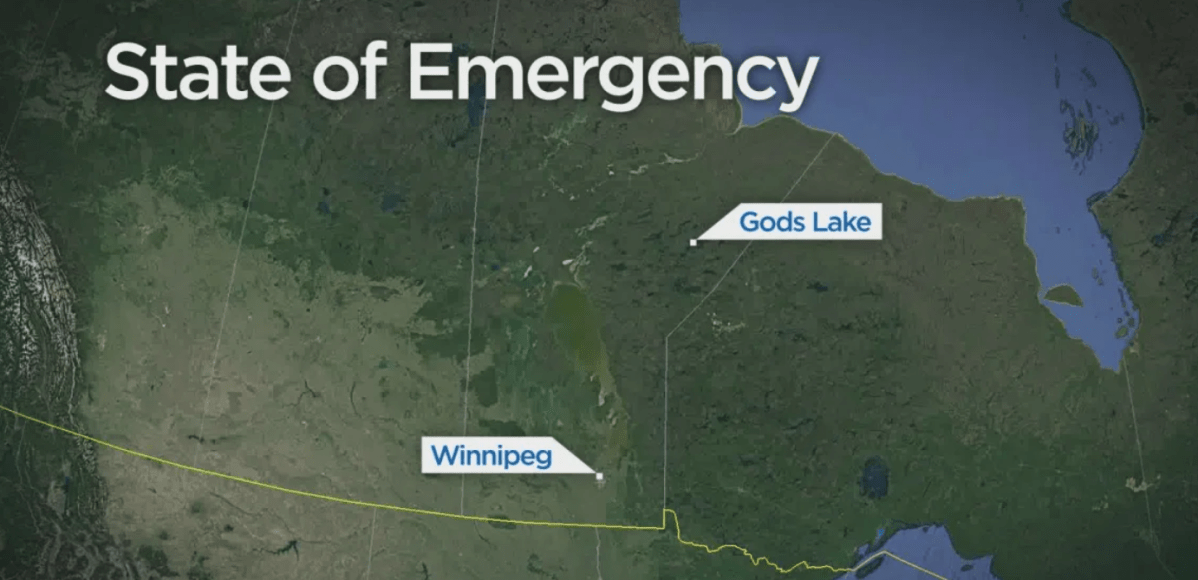Indigenous leaders from across Manitoba are calling for government aid to address an escalating drug crisis at God’s Lake First Nation, located 550 kilometres northeast of Winnipeg.

A state of emergency was formally declared on Oct. 4 due to the growing problem, in which between 20 and 30 per cent of the community’s 1,500 residents are experiencing meth addiction, and leaders say they’re still waiting on an official response to their call for help.
“We cannot be embarrassed. Our communities have many traumas that we are still healing from. This is a result of that trauma,” God’s Lake Chief Hubert Watt said in a statement released by the Assembly of Manitoba Chiefs (AMC) Tuesday.
“We have called upon the provincial and federal governments for help over and over. They continue to ignore the lives being lost and the trauma being inflicted.
“We cannot stand by silently when our First Nation is in distress. We call on Indigenous Services Canada to help us. To provide the resources required to build treatments centres our community needs and hire the health care staff to help us heal.”

Get weekly health news
Watt met with representatives of AMC, Manitoba Keewatinowi Okimakanak (MKO), the Southern Chiefs’ Organization, the Assembly of First Nations, Keewatin Tribal Council and Chemawawin Cree Nation Chief Clarence Easter on Monday to call for immediate support and resources to combat the crisis.
“Due to years of inadequate funding for accessible mental health supports, addiction treatment, primary care, education, housing and recreation, God’s Lake First Nation and its citizens are experiencing a humanitarian crisis,” said Cathy Merrick, the newly elected AMC grand chief.
“The First Nation desperately needs immediate interventions from both provincial and federal levels of government to immediately provide life-saving supports such as crisis response teams, mental health professionals, and human resources for the nursing station.”
In a statement to Global News, a spokesperson for Indigenous Services Canada (ISC) said the department has been “meeting regularly with leadership and partners to discuss both short-term and long-term supports needed for treatment and healing in community.”
“We are deeply troubled by the state of emergency declared by God’s Lake First Nation in relation to addictions issues,” the spokesperson said.

Indigenous Services Canada’s First Nations and Inuit Health Branch has four rotating mental health therapists who are providing 24/7 support in God’s Lake First Nation, the spokesperson said, adding that MKO’s crisis response team is en route to the community.
Traditional healers will remain available to provide assistance in God’s Lake throughout the week, the federal department said.
“ISC continues to work collaboratively with all First Nations communities in Manitoba, and with community partners and stakeholders, to support and improve services in communities,” the spokesperson said.
“Officials have been routinely meeting with representatives from God’s Lake First Nation and other communities in the region to work on a long term plan.”
The God’s Lake community is no stranger to struggle. A crisis in 2019 with connections to addiction led to a devastating string of suicides and suicide attempts.
— with files from Shane Gibson













Comments
Want to discuss? Please read our Commenting Policy first.